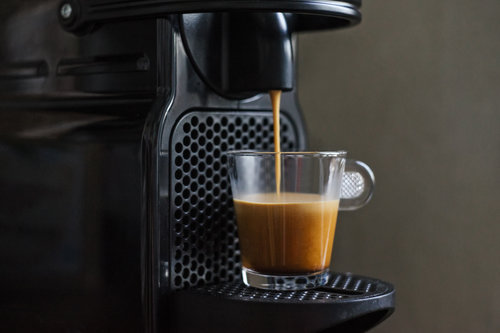
What is specialty coffee? In brief, all coffee is graded out of 100 in a process called “cupping” that is based on how many defects it has. According to the Specialty Coffee Association (SCA), specialty coffee is coffee that has been graded above 80. Much like a movie, its quality isn’t dependent on the acting you see on screen, but the writing, production, directing, and everything else that went into making the movie, all the way to the final product.
The term “specialty coffee” was first coined by Erna Knutsen in a speech to delegates of an international coffee conference. Erna had the idea that quality needed to be preserved from crop to cup. From botanical features, farming practices, processing methods, to even further down the supply chain (sale, roasting, brewing), every step contributes towards achieving the classification of “specialty coffee”.
HOW TO DETERMINE SPECIALTY COFFEE
Until it is graded, specialty coffee is simply a concept. There are numerous stages in the process that can ruin its potential to become special, therefore each stage is just as crucial as the last.
- Ground Level – Specialty coffee can only be grown in the most ideal conditions. If the seed is planted in the wrong spot, in the wrong soil, or even at the wrong altitude, then the coffee will lose its special certification.
- Ripeness – Once planted in the perfect spot, in the perfect soil, at the perfect attitude, you must then pick the bean at the perfect time. It is common among coffee growers to agree that the most critical aspect of achieving the best bean is to harvest at the optimal time.
- Delivery Time – Ensuring fast delivery to the mill is vital. If delivery is quick, the freshness and potential of the coffee can be preserved. If delivery takes too long, the coffee can be spoiled and all the hard work and effort in its growth will go to waste.
- Processing Stage – Carefully managing the coffee is important at the processing stage. Once it is washed and the skin removed, the bean must then be dried. If the bean is dried unevenly, insufficiently, too slowly, too quickly, or even gets wet again, it will reduce its chances of being special.
- Transformation Stage – With the transformation from green bean to final roasted coffee, success depends on the roaster. They must successfully identify the potential of the coffee and roast it so to maximize flavor. Any mistake made by the individual who packaged the bean, transported it, roasted it, or ground it means the coffee is no longer special.
If the whole process is completed effectively and efficiently and the SCA give it a rating above 80, then the coffee is labeled as “specialty coffee”.
WHAT’S BETTER THAN SPECIALTY COFFEE? ORGANIC SPECIALTY COFFEE
Organic coffee has many benefits both to the environment and to your health, but go one step further and you get organic specialty coffee. When you choose organic, you know you are drinking coffee that was produced in an environmentally sustainable way. Specialty coffee considers factors all the way until it reaches your cup. Combine both together and you have created the ultimate cup of coffee. Here are some ways in which organic and specialty coffee can benefit the environment and your health:
Removal of Harmful Pesticides
With the rise in demand for coffee, farmers are growing coffee away from the protection of shade and have begun growing in direct sunlight at a higher density. In turn, this results in natural pesticides such as birds and insects being unable to protect the fruit. Organic coffee growers choose the traditional shade-growing method, where the fruit is more tolerant and can be protected by nature. This means no toxic chemicals harming the fruit, the environment around it, or the farmers.
RESCUING THE FORESTS
To keep up with the high demand for coffee, space is required. To make space, trees are sacrificed. Deforestation is a major issue in Central America where trees have been clear-cut to create space for sun plantations. Drinking organic coffee means that there is less requirement for sun plantations, thus, fewer trees will be cut down.
SUPPORTING FARMERS
Corporations are the prime culprits for producing sun-grown coffee. Small, local farmers, however, are much less likely to encourage this method, choosing shade-grown coffee over the alternative. Drinking organic or specialty coffee will help you support the smaller farmers and promote their methods.
SUSTAINABILITY
Using a Nespresso machine requires capsules, these capsules produce waste. Non-organic capsules are not biodegradable and cannot be recycled. Organic capsules though, are, meaning the coffee you’re drinking is not harming the environment.
IDEAL CONDITIONS
To achieve specialty status, coffee must be grown in perfect conditions and picked at the right time. Altitude plays an important part in this, as it contributes to the moisture content of the bean. This moisture content must be between 9-13%, which severely reduces the chance of mold and mycotoxin development (exposure can cause cancer, kidney toxicity, and immune suppression).
CHEMICAL EXPOSURE
When choosing coffee for your Nespresso machine it is important to know what type of capsules you are using. Non-organic plastic capsules can leak into the coffee when exposed to hot water, such as when you use your Nespresso machine. Although this transferral of plastic is minimal per capsule, the average American consumes 3 cups of coffee per day. Chemicals in plastics such as BPA, BPF, BPS, and phthalates have been known to contribute towards weight gain, fertility problems, and hormone imbalances. Brands that use organic coffee capsules use biodegradable materials that are harmless to your health and well-being.

WHERE TO FIND ORGANIC SPECIALTY COFFEE
Whether you want coffee beans, ground coffee, coffee capsules, or even instant coffee, there is an exponential number of brands and companies to choose from. However, when it comes to organic and specialty coffee, that number decreases considerably. One company that showcases both organic and specialty options is Artizan Coffee. Being the first company to be USDA and FairTrade certified for their line of Nespresso compatible capsules, Artizan excel in providing superior organic specialty coffee.
Artizan Coffee put sustainability at the forefront and focus on having a positive impact on the environment and your health. Varieties such as the White Rhino Signature Blend, or the Cuba Mia Signature Blend provide you with amazing taste and peace of mind knowing that you can enjoy coffee while saving the planet.
